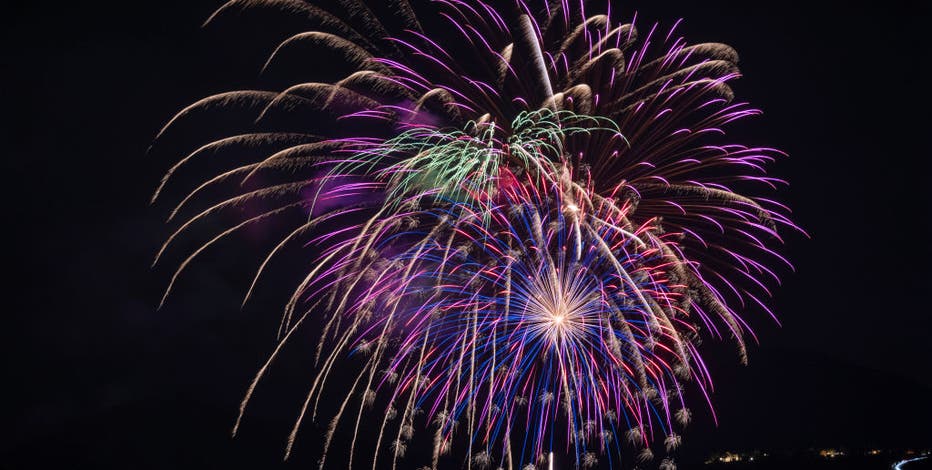More communities in western Washington adopt fireworks bans and reporting systems to increase safety
More communities in western Washington adopt fireworks bans and reporting systems to increase safety
Fireworks are illegal in several communities across western Washington and throughout the state. However, some people still choose to break the law-- doctors in the emergency room at Harborview Medical Center in Seattle know that for a fact.
SEATTLE - This Fourth of July, the sky will light up with fireworks as many around Puget Sound celebrate the nation's freedom. However, it’s the personal fireworks that officials continue warning the public about.
Every year, police, fire departments, medics, and doctors deal with fires and injuries that are caused by the explosives. More communities adopted new restrictions and measures this year to try to keep everyone safe this Independence Day.
Fireworks are illegal in several communities across western Washington and throughout the state. However, some people still choose to break the law-- doctors in the emergency room at Harborview Medical Center in Seattle know that for a fact.
"Sometimes people come into the emergency room and they’ve held a firework in their hands and literally their fingers have blown off by the fireworks. And they essentially just have the stub of the finger left behind. Many of these cannot be fixed. The parts are just destroyed by the explosion of the firework, and then end up with an amputated finger or worse maybe even an amputated hand," said Dr. Micahel Sayre with University of Washington School of Medicine.
Sayre said he anticipates the emergency room will treat similar injuries this year. About 50 people of all ages were treated in the emergency room last Fourth of July for fireworks related injuries. He said parents should never let children access the explosives.
"Young children don’t have the skills to manage fireworks and should not be handling fireworks, period. Even older children – teenagers – they just don’t have the brain development to use fireworks wisely," said Sayre.
Featured
Where are fireworks illegal in Washington state?
Fireworks go on sale in some areas of Washington state starting Tuesday, June 28. But many cities and counties have banned the sale or use of fireworks. Here's what you need to know ahead of 4th of July.
Lt. Sue Stangl with Seattle Fire Department said July 4 is one of the departments busiest days, even though the explosives have been banned in Seattle for years.
"You have no control where that projectile might land once hits the air and you definitely can’t anticipate where some of those burning embers can land," said Lt. Stangl. "In 2021, just within a three day period from July 3 to July 5, we had 15 fires that were absolutely ignited by fireworks and we had one significant injury. And that is just in the city of Seattle."
Just like Seattle, more communities are adopting measures to increase safety. 2022 is the first year in unincorporated King County where the explosives are illegal. The communities include Skyway, White Center, Snoqualmie Valley, Greater Maple Valley, Enumclaw Plateau and Vashon Island. There is an online system where fireworks complaints in King County can be filed.
Fireworks are illegal in most of Pierce County, including the cities of Fife, Milton, Orting, Roy, Ruston, Sumner, Tacoma and University Place. South Sound 911 launched a new Online Fireworks Complaint System to help dispatchers gather reports in those cities on their busiest day of the year.
"A typical day for us is about 2,500 calls and on the Fourth it’s known to more than double. So, we wanted to give people an alternative option to reporting fireworks related complaints," said Jessica Kulaas, education coordinator for South Sound 911.
Kulaas said the reporting system runs July 1-5 to help keep the 911 lines open.
"Of course emergencies resulting from fireworks, such as fires or serious injuries, call 911," said Kulaas.
Anyone using personal fireworks where there is a ban could pay a fine of $513. Several communities throughout western Washington are hosting fireworks displays on July 4 as a safe alternative.
On a holiday honoring the nation’s freedom, first responders said it’s not worth the risk breaking the law to celebrate that freedom.
"When you think about just one significant injury or one fatality or one business burned to the ground, it is just not worth it. The impact to that community, to that neighborhood, and to that family is huge. And if it’s preventable, maybe we can do that as a community—try to look sort of beyond our own personal desires about exploding things up," said Lt. Stangl.


